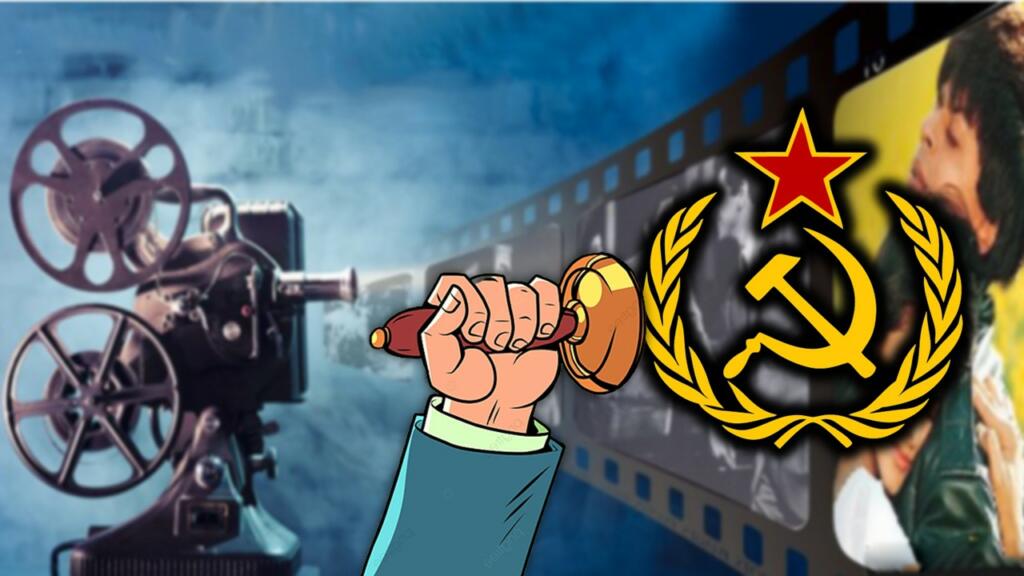“My KGB instructors specifically made a point, never bother the leftists. Forget about this ‘political prostitute’. Aim higher! Try to get into established, conservative media. Reach to movie makers, intellectuals, so called academic circles; cynical, egocentric people who can look into your eyes with an angelic expression and tell you a lie. These are the most recruitable people”. These are the words of Former KGB agent Yuri Bezmenov.
Indian cinema, popularly known as Bollywood, has captivated audiences worldwide with its vibrant storytelling and colorful musical extravaganzas. However, hidden beneath the glitz and glamour lies a fascinating tale of international influence, with the Soviet Union emerging as a surprising force in shaping the Indian film industry until 1991. This article delves into the intriguing relationship between the Soviets and Bollywood, exploring their funding, operations, and the extent of their influence.
The Godfather of Indian Cinema
Contrary to popular belief, the real power players in Indian cinema during the pre-1991 era were not notorious figures like Haji Mastan, Dawood Ibrahim, or the Nehru Gandhi dynasty. Instead, it was the Soviet Union that silently pulled the strings behind the scenes. This unexpected revelation sheds light on a lesser-known aspect of Indian cinema’s history.
Former KGB agent Yuri Bezmenov’s revelations provide insight into the Soviet Union’s tactics in India. Bezmenov explains that his KGB instructors emphasized targeting established, conservative media, influential filmmakers, intellectuals, and academic circles. These individuals, with their charisma and ability to deceive, became prime targets for Soviet recruitment.
The untold risk taken by “Jubilee”
The rather underrated web series “Jubilee”, streaming on Amazon Prime, aptly depicts the tussle between the Americans and Soviets for dominance in Indian cinema. Both superpowers recognized the immense reach and influence of Bollywood and sought to gain control over its narrative. However, it was the Soviets who, through strategic funding and operations, emerged as the predominant force.
Also read: The real life Mr. and Mrs. Roy, whose life inspired series “Jubilee”!
Soviet influence extended beyond financial support, with the USSR actively dictating what would be served on the platter of Indian cinema. Through strategic alliances and partnerships, Soviet interests ensured a particular ideological slant in Bollywood productions, aligning with their own socialist principles.
One legendary figure who often emerges in discussions about the Soviet-Bollywood relationship is Raj Kapoor. Known for his timeless classics, Kapoor’s films resonated strongly with the Soviet audience. Legends surrounding Kapoor’s car being lifted by the Soviets and his alleged entry into the USSR without a visa only add to the mystique surrounding this unique bond.
Intoxicating Intellectuals the “Soviet way”
Bezmenov’s revelations also shed light on the Soviet Union’s efforts to influence Indian cinema. Foreign journalists visiting Moscow were plied with copious amounts of alcohol to keep them in a perpetually intoxicated state, effectively dampening their awareness and curiosity. This strategy aimed to control the narrative and ensure favorable coverage of Soviet endeavors in Indian cinema.
Indian filmmakers, eager to expand their audience base, often chose to release their movies in USSR-related countries and participate in Soviet-sponsored film festivals. This symbiotic relationship allowed Indian cinema to gain exposure to a massive audience while providing the Soviets a platform to showcase their preferred narratives.
Also read: Upcoming Films that Prove Why Bollywood is Just a Remake Factory
The year 1991 marked a significant turning point for Indian cinema, as the country opened its doors to international collaborations and expanded its reach beyond the Soviet sphere. This move allowed Bollywood to explore diverse themes, genres, and international markets, leading to its global dominance in the years that followed.
The influence of the Soviet Union on Indian cinema until 1991 remains an intriguing and often overlooked chapter in Bollywood’s history. Through strategic funding, dictation of narratives, and careful cultivation of relationships, the Soviets shaped the industry’s trajectory and left an indelible mark on Indian cinema. As we reflect on the intertwined history of Bollywood and the Soviet Union, it becomes evident that the dynamics of global cinema are shaped not only by artistic creativity but also by the often-unseen forces of international politics and influence.
Support TFI:
Support us to strengthen the ‘Right’ ideology of cultural nationalism by purchasing the best quality garments from TFI-STORE.COM
